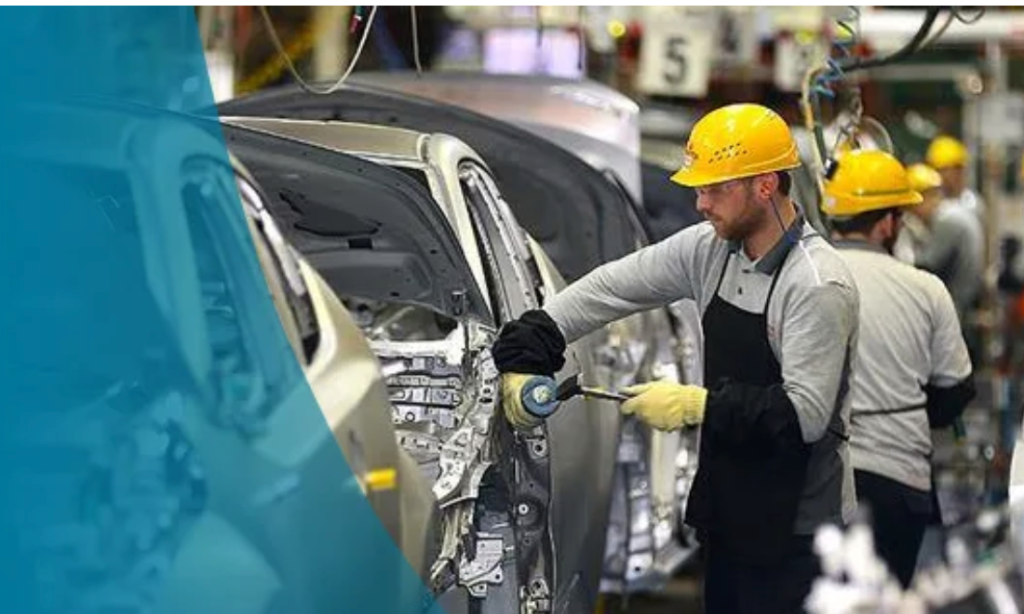Introduction
In the competitive automotive industry, maintaining high-quality standards is essential for success. The IATF 16949 certification, developed by the International Automotive Task Force (IATF), sets the global benchmark for quality management systems in the automotive sector. This article explores the significance of IATF 16949 certification, the process to achieve it, and how partnering with a reputable certification body like IRQS (Indian Register Quality Systems) can facilitate this journey.
What is IATF 16949 Certification?
IATF 16949 is an international standard that specifies the requirements for a quality management system (QMS) in the automotive industry. It focuses on continuous improvement, defect prevention, and the reduction of variation and waste in the supply chain. This standard is applicable to organizations involved in the design, development, production, installation, and servicing of automotive-related products.
Benefits of IATF 16949 Certification
Achieving IATF 16949 certification offers several advantages:
- Enhanced Customer Satisfaction: By adhering to stringent quality standards, organizations can meet customer expectations more effectively, leading to increased satisfaction and loyalty.
- Improved Operational Efficiency: The focus on continuous improvement and waste reduction streamlines processes, resulting in cost savings and better resource utilization.
- Competitive Advantage: Certification demonstrates a commitment to quality, differentiating organizations in a crowded market and potentially opening doors to new business opportunities.
- Regulatory Compliance: IATF 16949 helps organizations comply with various regulatory requirements, reducing the risk of non-compliance penalties.
The IATF 16949 Certification Process
Achieving IATF 16949 certification involves several key steps:
- Gap Analysis: Assess your current quality management system against the IATF 16949 requirements to identify areas for improvement.
- Training: Educate your team on the principles and requirements of IATF 16949 to ensure effective implementation.
- Documentation: Develop and document processes and procedures that align with the standard’s requirements.
- Implementation: Put the documented processes into practice, ensuring they are followed consistently across the organization.
- Internal Audits: Conduct internal audits to evaluate the effectiveness of the QMS and identify areas for improvement.
- Certification Audit: Engage an accredited certification body to perform an external audit of your QMS.
- Certification: Upon successful completion of the audit and resolution of any non-conformities, receive the IATF 16949 certification.
Role of IRQS in IATF 16949 Certification
IRQS, a department of the Indian Register of Shipping, is an accredited certification body recognized by the IATF. They offer comprehensive services to assist organizations in achieving IATF 16949 certification:
- Training Programs: IRQS provides specialized training for quality assurance managers, implementation teams, and management representatives in the automotive industry. These programs equip participants with the necessary skills to understand and apply IATF 16949 standards effectively.
- Auditing Services: As an accredited certification body, IRQS conducts thorough audits to assess your organization’s compliance with IATF 16949 requirements, ensuring a smooth certification process.
- Consultancy: IRQS offers expert guidance throughout the certification journey, from gap analysis to post-certification support, helping organizations navigate the complexities of the standard.
Conclusion
Achieving IATF 16949 certification is a significant milestone for organizations in the automotive industry, underscoring a commitment to quality and continuous improvement. Partnering with a reputable certification body like IRQS can streamline the certification process, providing the expertise and support necessary to meet the rigorous standards of the automotive sector. By embracing IATF 16949, organizations not only enhance their operational efficiency but also position themselves as leaders in quality management within the automotive industry.
